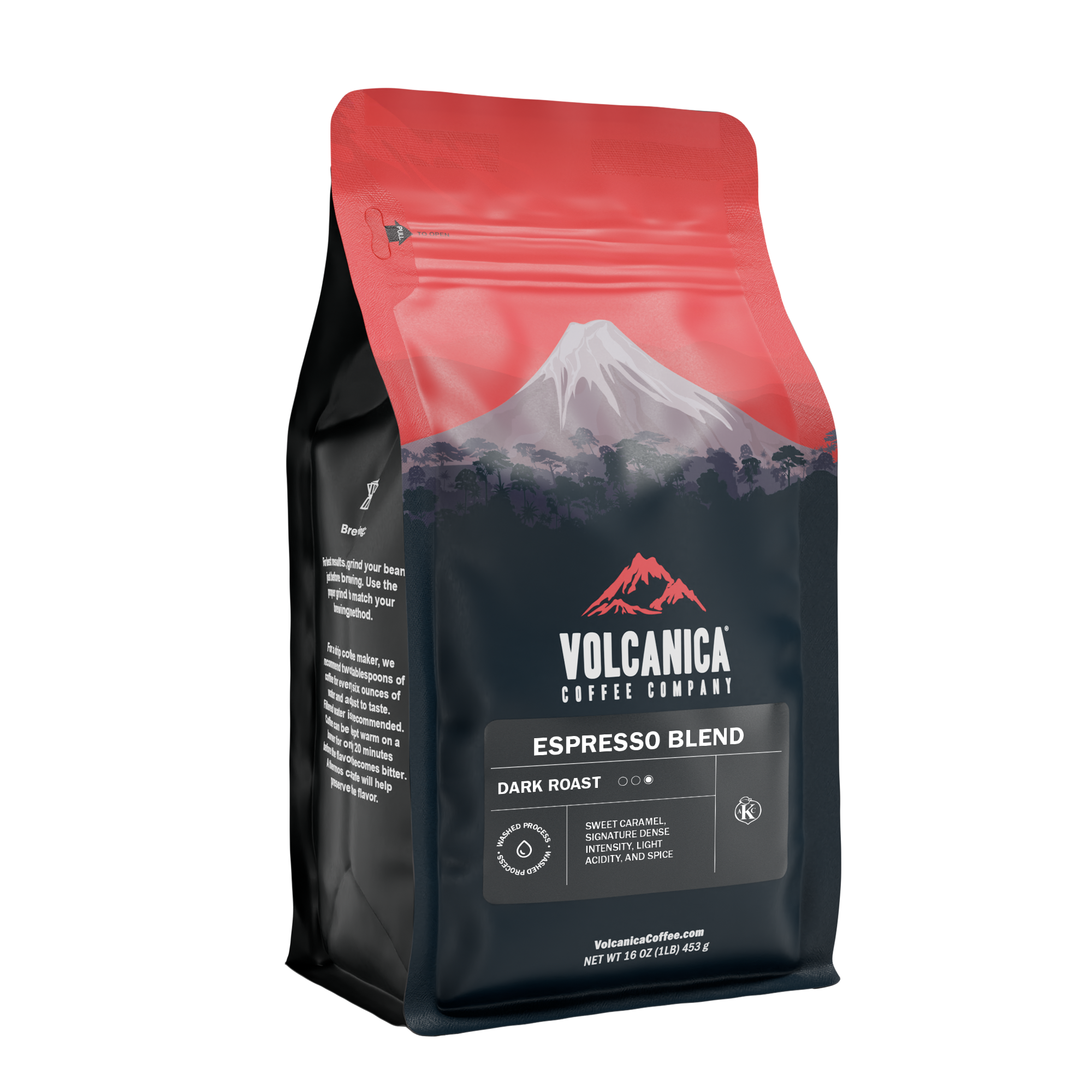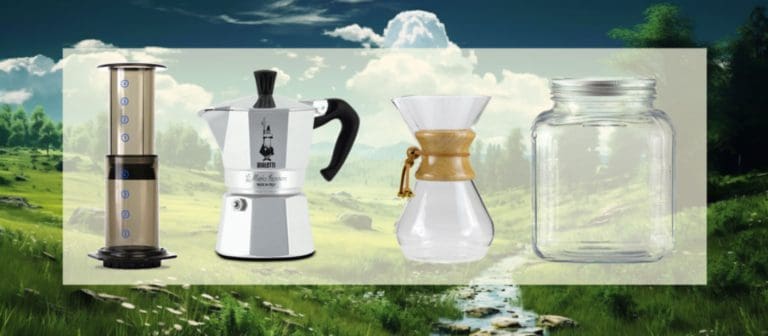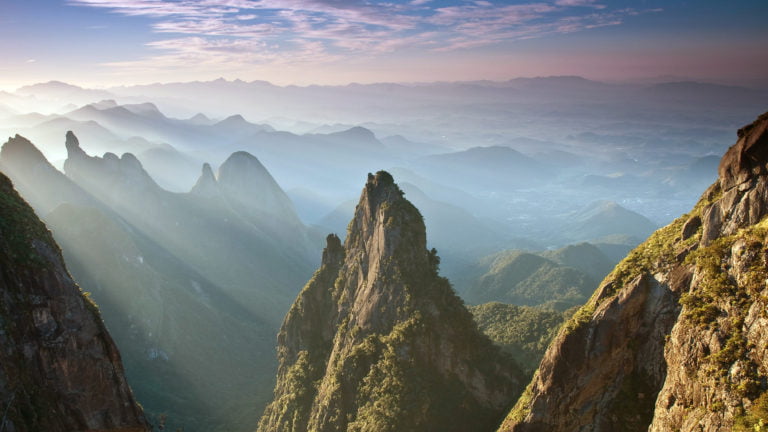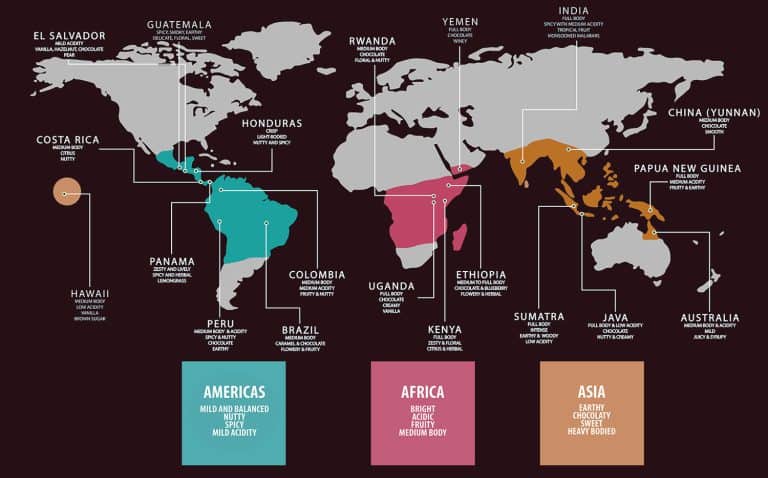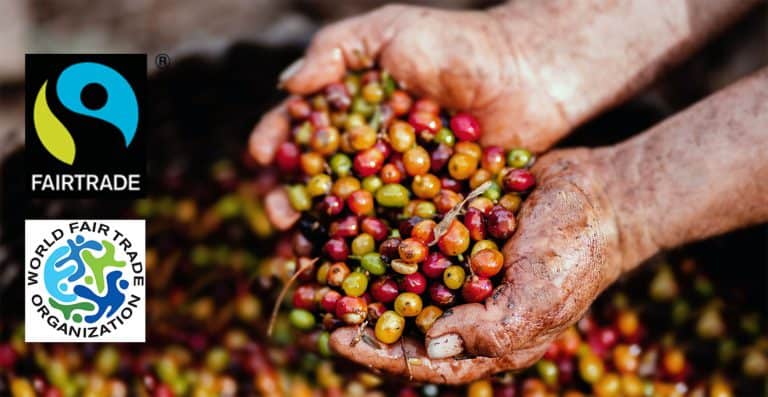What is Rainforest Alliance Coffee and is it worth it?
Coffee is an indispensable beverage and millions of people drink it every single day. Yet, drinking delicious coffee does not end there. Like all consumer products, coffee cultivation, and processing take a toll on our planet. So when you’re choosing which coffee to drink, it’s important to choose one that does the least amount of damage.
We believe that drinking Rainforest Alliance Coffee could be one of the best coffee-drinking decisions that you can make. It’s not just coffee with a certification, it’s coffee with a purpose.
What is Rainforest Alliance Certification?
The Rainforest Alliance’s mission is critical in keeping coffee farmers properly informed and educated about the methods of sustainable farming that guarantee an increase in the yields and protection of the environment.
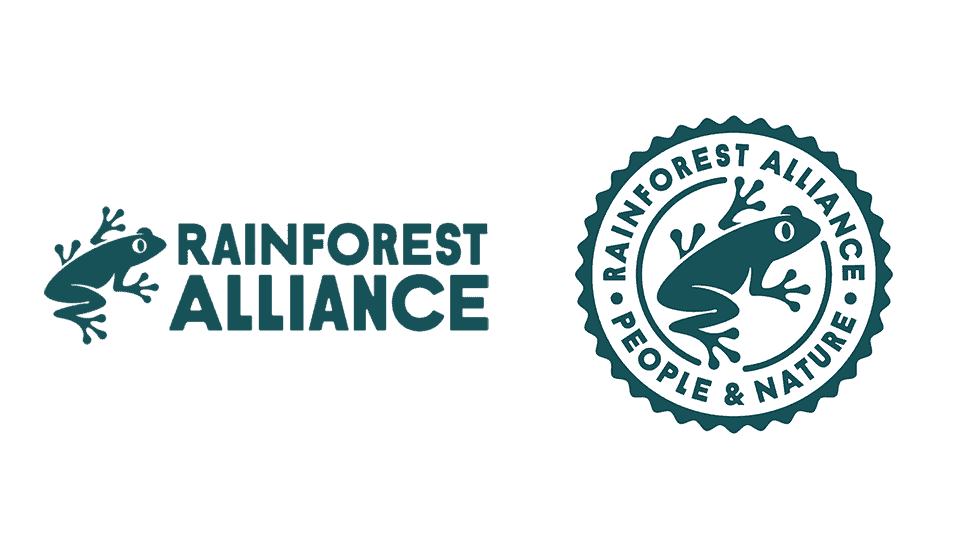
The Rainforest Alliance works hand in hand with coffee farmers by administering annual auditing against rigorous standards that feature detailed economic, environmental, and social criteria.
The criteria are specifically designed to protect and preserve biodiversity, secure, and deliver financial benefits to farmers while fostering a culture of respect for workers and the local communities.
Why is Rainforest Alliance Certification so Important?
Generally, Rainforest Alliance intends to protect the planet and provide labor rights to the workers. It works with the Sustainable Agriculture Network (SAN), an institution that sets a separate standard for farms and other standards. One of the most important environmental standards that the Rainforest Alliance emphasizes is deforestation.
SAN sets a standard on farms that coexist with the natural forest that serves as its cover, wherein a coffee farm, for instance, has to maintain 40% of canopy coverage that consists of at least two strata. On these strata, at least 12 species of trees should be cultivated per hectare of farming land.
Aside from this, farmers are prohibited to alter the natural waterways. Although SAN allows the use of pesticides, it is only applicable for use if there’s natural vegetation that serves as buffer zones between the crops and the areas where humans dwell.
In terms of labor standards, SAN follows the recommendations of the United Nations and the International Labor Organization. Reasonable minimum wages, maximum workweeks, and the right to organize are some of the articles of the local laws that farms must meet.
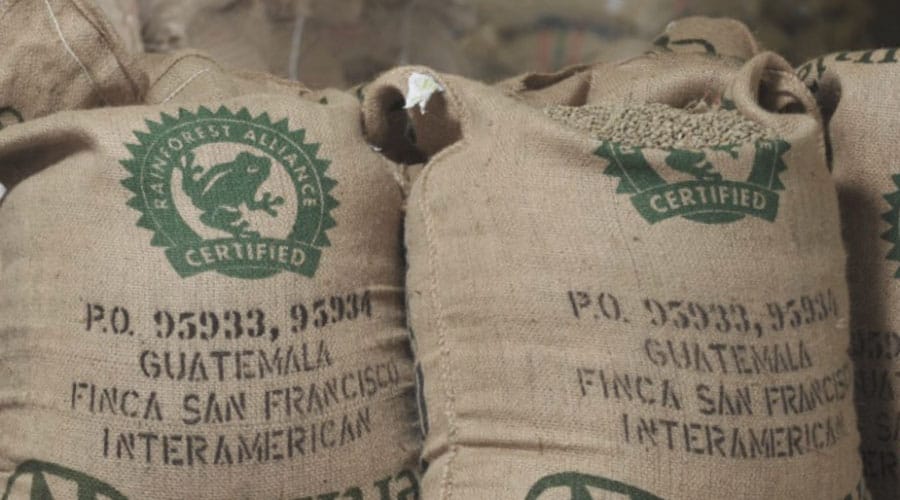
Cost Difference
The Rainforest Alliance doesn’t regulate the cost of audit services. The audit cost depends on the certification body that farmers chose to assess their farms. The fee depends on the farm size, farm location, and organization size. Oftentimes, smallholder farmers seek certification as a group to reduce audit expenses.
Other than the audit service fee, the farmers are also responsible for covering all the associated expenditures to meet the Sustainable Agriculture Standard.
Generally speaking, it’s worth spending more money on Rainforest Alliance Certified coffee. You know your money is going to improve the eco-welfare of the environments in which the beans were grown and processed. To me, this is worth the extra cents compared to more industrial generic coffee.
Does it Taste Better?
The coffee’s delightful taste comes from the fact that Rainforest Alliance coffee is harvested from coffee plants cultivated in healthy soil. A healthy soil by definition of Rainforest Alliance is a soil that has a diversified ecosystem. Meaning, the soil was not exploited for farming use but also became a habitat for animals. Such diversity allows the restoration of the soil to its natural condition.
After years of intensive farming, such farming practice exhausts essential minerals and nutrients that a plant needs to grow healthy. If a plant is cultivated in polluted soil, the effect is obvious in the quality of coffee beans produced.
Yet, much difference is observed in coffee plants cultivated in Rainforest Alliance-certified coffee farms. Most of these farms use shade-grown techniques in farming coffee. The technique preserves the carbon in the soil and replenishes the soil’s nutrients. No chemicals are used. Thus, these techniques allow coffee farms to continuously produce high-quality coffee beans that are delicious up to the last drop.
Benefits of Rainforest Alliance Coffee
“The price of discipline is always less than the price of regret” (Nido R. Qubein)
Qubein’s quote about discipline is more profound if related to the proper ways of using the earth’s natural resources. The auditing and certification process might be daunting with the paperwork to complete and the requirements to fulfill. However, once a coffee farm is certified and the policies are implemented, the end result is sustainability.
What benefits does the Rainforest Alliance certification give? There are several perks in Rainforest Alliance certification to count and here are some that can make you feel proud for the decisions you’ve made to get a Rainforest Alliance seal. These are:
- Coffee farms with sustainability certifications have better environmental performance compared to non-certified farms.
- Sustainable farms tend to receive higher market value than noncertified farms and show promising net value with adequate farm investment strategies used.
- Economic, environmental, and social tradeoffs can be mediated through various levels of productive investment.
- Trade-offs between income and biodiversity can be mitigated with certified farms that receive higher market value for their produce.
Missing the opportunity to get a Rainforest Certification for your farm to reap these benefits is certainly a price you’d regret to pay.
Certification
If you’re all out to support the conservation of biodiversity and sustainable livelihoods through responsible land-use practices, Rainforest Alliance and Fair Trade are sustainable movements worth following. Yet, before you put all your hands down on these environmental campaigns, you must know the difference between Fair Trade and Rainforest Alliance.
Rainforest Alliance Coffee vs Fair Trade
Although both certificates champion the welfare of the planet and its inhabitants, Fairtrade and Rainforest Alliance still have differences that are worth considering.
Fair Trade certification aims to support the people behind cultivating the coffee beans that you love – the farmers and workers. This certification focuses on improving the lives and the communities of the people cultivating the farm.
Fairtrade certification highlights its campaign on connecting disadvantaged producers and consumers, promoting fair trading conditions while empowering the producers to fight poverty and exploitation to improve their quality of life.
Learn more about our favorite 8 Fair Trade Coffee Brands that support social justice and environmental efforts.
Rainforest Alliance, on the other hand, aims to protect the planet through the implementation of standards and policies for a sustainable world while improving the lives of the farmers and their forest communities. It gives more emphasis on the improvement of the earth’s social, economic, and environmental conditions.
Is Rainforest Alliance Coffee the Solution to Fair & Sustainable Coffee Production?
Rainforest Alliance Coffee may not be the one-solution-fit-all in protecting the environment. However, its existence helps in protecting the environment, the farmers, and the consumers while improving their quality of life at the same time.
There’s no perfect solution to fully counter the damages that man has inflicted on our planet. Yet, one small act can make a difference. Likewise, there might be loopholes in some of the policies and standards that Rainforest Alliance implemented but this can be fixed with constant updates.
In our opinion, Rainforest Alliance Certification is a step in the right direction. We’ve written about Direct Trade before and feel this is where brands need to get to as it supports the farmers and workers directly, not just the planet.
Rainforest Alliance Coffee Brands We Recommend
Here are our favorite brands that offer Rainforest Alliance-certified coffees:
Volcanica
Volcanica Coffee, known for its specialty coffees from volcanic regions, proudly holds the Rainforest Alliance Certification.
This endorsement reflects their commitment to sustainable and environmentally friendly coffee production, emphasizing the well-being of farmers and the conservation of biodiversity. As a company with a diverse range of over 150 coffees, Volcanica caters to those who value both exceptional taste and ethical, sustainable practices.
Read more on our full review of Volcanica coffee.
A dark roasted blend featuring sweet caramel flavor with dense spices like nutmeg and clove, designed to complement milk and pastries.
This blend combines South and Central American coffees to create a robust flavor profile. The coffee offers a bright yet rich espresso shot, characterized by balanced acidity, thick crema, and notes of caramel and cocoa.
Fresh Roasted Coffee
Established in 2009, Fresh Roasted Coffee merges gourmet flavors with eco-conscious practices, using eco-friendly roasters for global beans. Their method ensures fresh, flavorful coffee, is directly shipped to customers. Recognized by Inc. 500, the company also proudly holds a Rainforest Alliance Certification, demonstrating a commitment to environmental sustainability and social responsibility, enhancing both coffee quality and global well-being.
This Sumatran coffee offers a rich flavor with notes of dark chocolate and a bold finish, suited for lovers of intense, dark roast coffee.
It has a reduced acidity and enhanced body without bitterness. The coffee is wet-hulled and sun-dried, featuring Ateng, Tim Tim, and Bourbon varietals, harvested and exported during peak quality times.
Frequently Asked Questions (FAQs)
Here are answers to some common questions about Rainforest Alliance Coffee:
The Rainforest Alliance coffee is a coffee product that follows the policies and guidelines set by the Rainforest Alliance committee in place of protecting the environment, the farmers, and the forest communities. It’s a non-profit, tax-exempt institution with headquarters located in New York.
Yes. Starbucks has five primary coffee certifications, particularly Organic, Rainforest Alliance, Utz, Fairtrade, and Smithsonian Bird-Friendly. The coffee giant is dedicated to helping farmers overcome the challenges that most small coffee farms encounter. Thus, the company commits itself to buying 100% of ethically sourced coffee.
Yes. However, this certification institution is different from Fair Trade. The Rainforest Alliance certificate aims to improve the economic, social, and environmental conditions of the planet while helping farmers and their forest communities.
When you buy products with the Rainforest Alliance seal, it means that it is produced by farmers, foresters, or companies that are committed to working harmoniously to protect the earth and its people.
In Summary
Buying Rainforest Alliance-certified products can be one of the best buying decisions a consumer can make. Not only does it provide jobs to people, but such purchases mean a lot in helping farmers win in life and protect the planet.
Products certified by Rainforest Alliance, Fair Trade, and Direct Trade also show commitment to consumers and the environment because proceeds go to important projects that can help improve the condition of the environment, educate farmers, protect remaining natural resources, and fight poverty and labor exploitation.
Bottom line: don’t buy shitty coffee that doesn’t have any certification. You’re just throwing your money away while destroying the planet.


